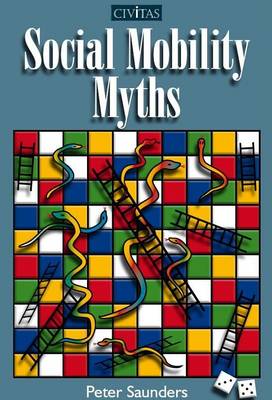In a 'meritocratic' society, people's achievements mainly reflect their own efforts and talents - if you are reasonably bright and motivated there is little stopping you from succeeding in life. In Social Mobility Myths, Peter Saunders, Professor Emeritus of Sociology at the University of Sussex, sets out to convince the political class that much of what they believe (or say they believe) about social mobility in this country is either false or more complicated than they think. According to Saunders, modern Britain is a much more open and meritocratic society than most of us realise and talent and motivation are the key drivers of success and achievement.
Saunders examines the political circumstances in which the social mobility debate is now being played out and identifies four specific 'Social Mobility Myths': The myth that Britain is 'a closed shop society' in which life chances are heavily shaped by the class you are born into; The myth that social mobility, already limited, is now getting worse; The myth that differences of ability between individuals either do not exist, or are irrelevant in explaining differential rates of success; The myth that governments can increase mobility via top-down social re-engineering within the education system and greater income redistribution. According to Saunders, most politicians across all parties accept these myths. They wrongly assume that social mobility in Britain is very limited and that class origins count for much more than personal effort and talent in shaping people's destinies.
Furthermore, they commonly express their sense of outrage that a class-ridden, closed society is becoming even more class-ridden and even more closed - thus the scene has been set for yet another bout of ineffective but expensive social engineering aimed at dismantling the imagined inequities of the British class system. In Social Mobility Myths, Saunders investigates the link between intelligence and social class using empirical sociological models. He argues that by ignoring intelligence, current thinking is in danger of spawning policies that will not work, and which might even make things worse. The bottom line is this: we cannot hope to develop good policies if we ignore the key influence on the phenomenon we are hoping to change.
- ISBN10 1906837147
- ISBN13 9781906837143
- Publish Date 31 May 2010
- Publish Status Out of Print
- Out of Print 27 June 2013
- Publish Country GB
- Imprint Civitas
- Format Paperback
- Pages 181
- Language English
